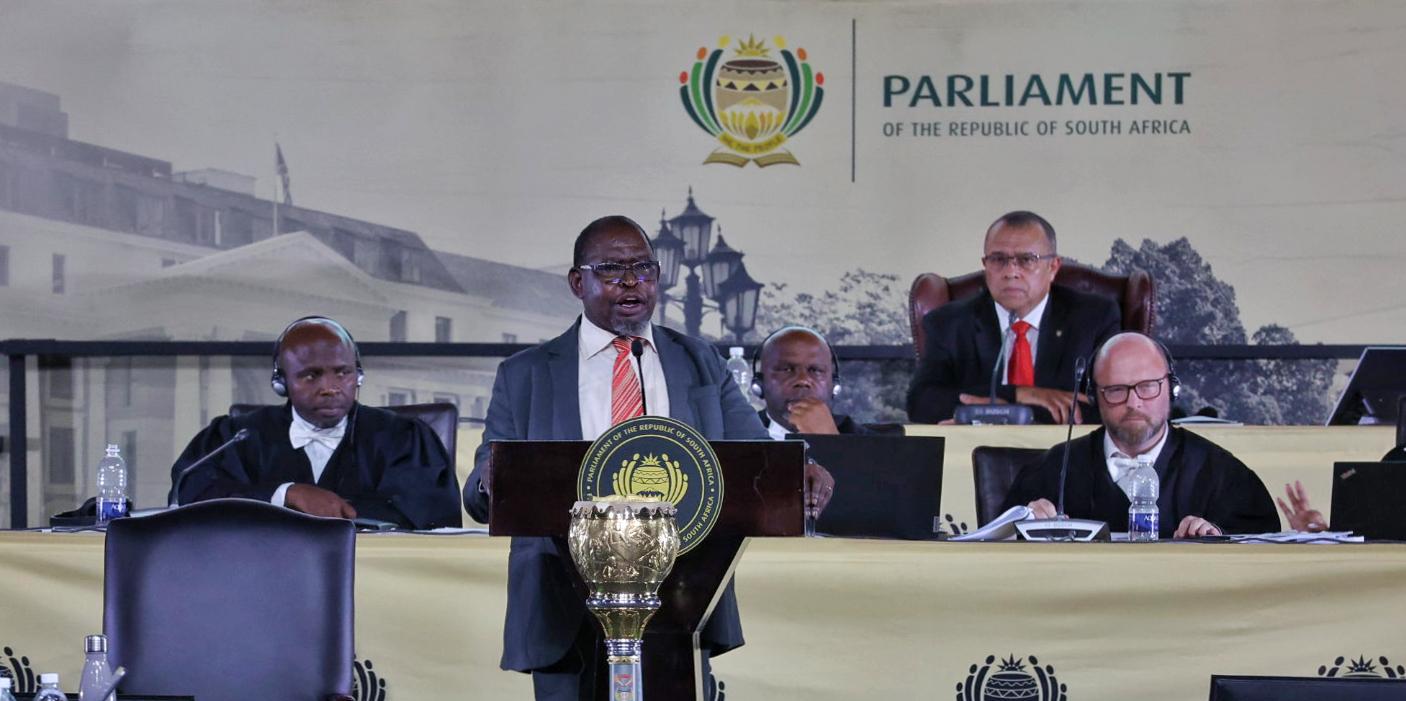
South Africa’s parliament has passed the 2025 Budget, tabled by Finance Minister Enoch Godongwana, following a contentious debate over a proposed increase in value-added tax (VAT). The decision, reached on Wednesday, has ignited significant political opposition, particularly from the Democratic Alliance (DA), and highlights ongoing fiscal challenges facing the nation.
The legislation was approved by a narrow margin, with 194 lawmakers voting in favour and 182 against, reflecting a sharply divided legislature. No members abstained. The budget had been originally scheduled for approval in February but was delayed due to internal disputes within the government, specifically concerning the VAT increase.
The proposal, initially outlined by Godongwana in a budget review presented to parliament on 12 March, details a phased VAT increase. Under this plan, the tax rate will rise by 0.5 percentage points in the 2025/26 financial year and by another 0.5 percentage points the following year, ultimately reaching 16 per cent by 2026/27. The government argues that this measure is crucial for addressing funding shortfalls and ensuring the sustainability of essential public services, particularly in health, education, transport, and security sectors.
In his budget speech, Godongwana underscored the necessity of these tax adjustments, pointing to mounting fiscal pressures that threaten the country’s economic stability. He argued that without such measures, the government would struggle to maintain essential services, exacerbating socio-economic inequalities.
However, the proposed VAT increase has been met with vehement opposition from key political stakeholders. The DA, the second-largest party in the ruling coalition, has been particularly vocal in its criticism, arguing that the tax hike will disproportionately impact lower-income households and place additional strain on South African consumers already grappling with inflation and economic uncertainty.
The DA has also raised concerns over government spending priorities, questioning whether increased taxation is the most viable solution to South Africa’s fiscal challenges. Party representatives have called for greater financial accountability and alternative revenue-generating strategies that do not impose additional burdens on ordinary citizens.
Notably, the DA had previously indicated a willingness to support the budget on the condition that the government withdraw the Expropriation Act, a contentious piece of legislation that enables the state to seize land without compensation in certain circumstances. However, the government did not comply with this demand, leading to the DA’s firm rejection of the budget.
In the weeks leading up to the parliamentary vote, extensive political negotiations took place behind closed doors. The ruling African National Congress (ANC), facing considerable resistance, sought to consolidate support from smaller coalition partners and other political factions to ensure the budget’s passage. Ultimately, these efforts proved successful, allowing the ANC to secure the necessary votes despite the controversy surrounding the VAT increase.
The passage of the budget marks a critical moment in South Africa’s economic policy trajectory, with implications for both domestic fiscal management and investor confidence. The VAT increase is expected to generate significant additional revenue, but its long-term impact on economic growth and consumer spending remains uncertain.
Opposition parties and economic analysts warn that the tax hike could lead to reduced consumer purchasing power, potentially dampening economic activity. There are also concerns that the increased VAT rate may exacerbate income inequality, as lower-income households tend to allocate a larger proportion of their earnings to taxable goods and services.
Meanwhile, proponents of the budget argue that the additional revenue will enable the government to fund essential public services more effectively, addressing critical infrastructure deficits and improving service delivery in key sectors. They contend that a failure to implement such measures would result in deeper fiscal deficits and greater economic instability in the long run.
As South Africa navigates these economic and political challenges, the government faces the ongoing task of balancing revenue generation with the need to protect vulnerable populations from adverse financial impacts. The coming months will be crucial in determining how the VAT increase affects economic dynamics, public sentiment, and the broader political landscape.


